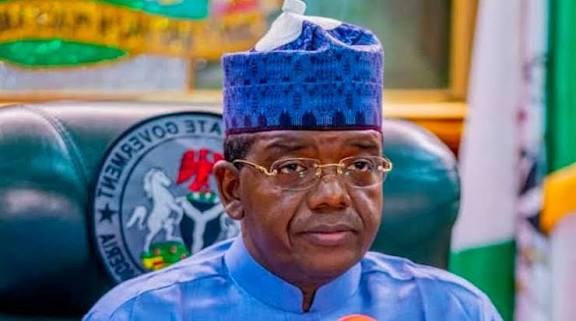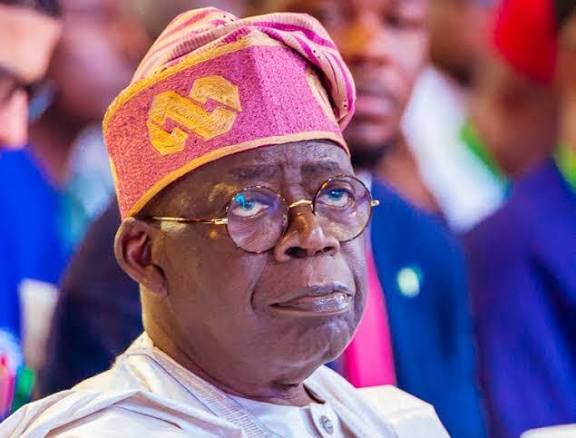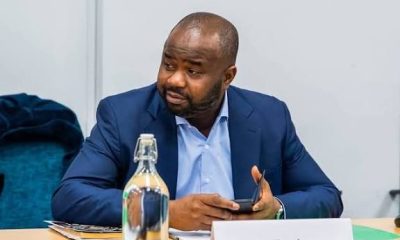News
FG to Penalize Non-Compliant Buildings Over Accessibility Laws

Federal government has issued a warning to financial institutions and other organizations in Nigeria, threatening sanctions against those that violate the accessibility law concerning the movement of Persons with Disabilities (PwDs).
Mr. Ayuba Gufwan, the Executive Secretary of the National Commission for Persons with Disabilities (NCPWD), issued the statement in Abuja in response to a reported case of discrimination against a PwD, Mr. Chris Agbo, a wheelchair user, at a well-known bank in Abuja on September 18.
The incident occurred around 11:45am when Mr. Agbo attempted to use the bank’s ATM and banking hall but was unable to access the facilities due to lack of a wheelchair ramp. After sending his aide inside to request assistance, he was informed that the ATM was not operational, leaving him with no alternative.
“This incident highlights the ongoing accessibility challenges that persons with disabilities face in Nigeria, despite the existing laws designed to protect their rights,” Gufwan stated.
He noted that the commission would launch an investigation into the case and similar incidents, vowing to prosecute any organization found violating the provisions of the Discrimination Against Persons With Disabilities (Prohibition) Act 2018. This law requires all public and private establishments to make their facilities accessible to PwDs.
“We will not tolerate any form of discrimination or inaccessibility in public and private buildings. It is distressing to see how disability communities are continually marginalized. In many cases, PwDs cannot access banking services simply because there are no ramps,” Gufwan said.
He highlighted the risks associated with PwDs relying on third-party assistance at ATMs, which often leads to revealing sensitive information such as their passwords. Many have fallen victim to fraud as a result, having their money stolen by those they rely on for assistance due to the inaccessibility of banking facilities.
Gufwan condemned all acts of discrimination against PwDs, stressing that the commission would use all available powers to ensure compliance with the law. He expressed particular disappointment with the refusal of some banks, schools and hospitals to provide ramps and other facilities.
“It is unacceptable that, in this day and age, some banks have failed to provide adequate access for customers with disabilities. Many PwDs have lost significant sums of money due to their inability to use ATM machines without third-party assistance,” Gufwan remarked.
The executive secretary reminded the public that NCPWD is empowered by law to sanction individuals and organizations found in violation of the accessibility requirements. He added that the law gave organizations a five-year period to make their facilities accessible, a deadline that expired last year.
“This year marks the beginning of strict enforcement, as the moratorium period for modifying existing buildings has passed. We will ensure close supervision, monitoring and evaluation to guarantee that every public-serving building in Nigeria complies with the accessibility law,” Gufwan concluded.
News
Activists confess receiving N500m Naira to blackmail Tinubu’s Minister Matawalle, beg for forgiveness

Five civil society activists and media operatives on have openly confessed to being part of a N500 million coordinated blackmail campaign against the Minister of State for Defence, Dr. Bello Mohammed Matawalle, and tendered an unreserved public apology to him.
The activists, led by Comrade Aryan Abdul Kareem, made the shocking revelation at a press conference in Gusau, the Zamfara State capital.
Speaking on behalf of Comrade Olumu Lucky, Comrade Olukayode Williams, Comrade John Osumbor Mark, and Engineer Bashir Muhammad, Kareem disclosed that the entire operation was sponsored and supervised by the administration of Governor Dauda Lawal Dare through his Spokesperson, Sulaiman Bala Idris.
According to the group, Sulaiman Bala Idris personally convened several secret meetings where they were briefed, handed instructions, and provided with funds.
The campaign, they said, cost “above five hundred million naira” and involved recruiting social media influencers, bloggers, political commentators, conventional media houses, and prominent Zamfara politicians including Senator Kabiru Marafa and Sani Abdullahi Shinkafi.
“We were part of that machinery. We accepted money and roles to circulate damaging and false narratives against Dr. Bello Matawalle even though we knew they were lies. We chose financial inducement over conscience,” Kareem admitted.
The activists said their actions caused “serious emotional pain, reputational damage and distress” to the Minister, his family, and supporters, adding that after deep reflection, they decided to come clean.
“Today, we tender our unreserved apology to His Excellency, Dr. Bello Mohammed Matawalle, and to every Nigerian who was misled by the falsehood we helped spread. We beg for his forgiveness and the forgiveness of the public. This apology is born out of genuine remorse,” the statement read.
The group further declared readiness to face any legal or moral consequences, stating that they possess “documentary evidence” of every transaction and meeting, including with Governor Lawal’s Spokesperson.
“We are ready to submit all the evidence and cooperate fully with the EFCC, DSS, police or any competent authority that wishes to investigate this matter,” they affirmed.
While urging other participants in the alleged plot to also confess, the activists said their decision was aimed at cleansing their conscience and helping to enthrone truth and accountability in Nigerian politics.
News
Security Agencies Uncover Plot to Stage Protest Against President Tinubu, NSA Ribadu

Nigeria’s security agencies have reportedly uncovered a plan by some opposition politicians to organise protests in Sokoto and other northern states against President Bola Tinubu and National Security Adviser Nuhu Ribadu.
Fresh intelligence reports made available to journalists on Friday show that former Senator Kabiru Marafa is the main arrowhead of the plot.
The group is allegedly working to discredit NSA Nuhu Ribadu and the Minister of State for Defence, Bello Matawalle, by falsely linking them to bandit groups and using a Sokoto-based militia to trigger violent protests.
Sources say the Zamfara State Government, led by Governor Dauda Lawal, is strongly backing the plan and providing funding, determined to paint the federal security team as incompetent and force the removal of both Ribadu and Matawalle.
Security operatives detected the scheme this week, monitored several planning meetings in Gusau and Abuja, blocked funding channels, and quietly disrupted the operation.
No arrests have been made, but all the key figures are now under close surveillance.
The key figures are now being monitored by security agencies to track their key sources of funding.
News
Security Agencies Uncover Plot to Stage Protest Against President Tinubu, NSA Ribadu

Nigeria’s security agencies have reportedly uncovered a plan by some opposition politicians to organise protests in Sokoto and other northern states against President Bola Tinubu and National Security Adviser Nuhu Ribadu.
Fresh intelligence reports made available to journalists on Friday show that former Senator Kabiru Marafa is the main arrowhead of the plot.
The group is allegedly working to discredit NSA Nuhu Ribadu and the Minister of State for Defence, Bello Matawalle, by falsely linking them to bandit groups and using a Sokoto-based militia to trigger violent protests.
Sources say the Zamfara State Government, led by Governor Dauda Lawal, is strongly backing the plan and providing funding, determined to paint the federal security team as incompetent and force the removal of both Ribadu and Matawalle.
Security operatives detected the scheme this week, monitored several planning meetings in Gusau and Abuja, blocked funding channels, and quietly disrupted the operation.
No arrests have been made, but all the key figures are now under close surveillance.
The key figures are now being monitored by security agencies to track their key sources of funding.
-

 News3 months ago
News3 months agoCSOs fault DAPPMAN’s ₦75 per litre coastal freight cost demand
-

 Uncategorized1 month ago
Uncategorized1 month agoParacetamol Use in Pregnancy Doesn’t Cause Autism, New Study Confirms
-
Uncategorized3 months ago
Consumer Forum Urges FG, DSS to Investigate Desperate Efforts by PENGASSAN to Shut Down Dangote Refinery
-

 News3 weeks ago
News3 weeks agoBreaking: FBNQUEST: Nestoil and Neconde are not under any receivership
-

 News3 months ago
News3 months agoCSOs To Tinubu: Hold DAPPMAN, Labour Unions Responsible For Breakdown Of Law, Order
-

 News1 month ago
News1 month agoCoalition Backtracks, Apologises To FIRS Chairman Adedeji Over False Allegations
-
News1 month ago
NGO Empowers 150 Girls with Disabilities in FCT to Promote Inclusive Education
-

 Uncategorized2 months ago
Uncategorized2 months agoSowore and Divisive Anti-Democratic Forces Must Be Stopped; Enough is Enough-ACN



